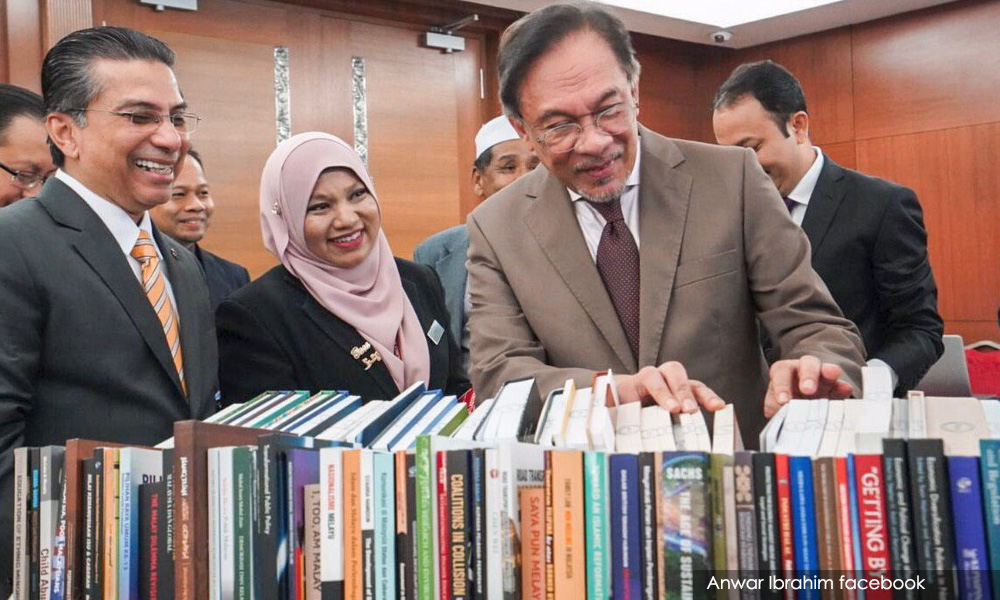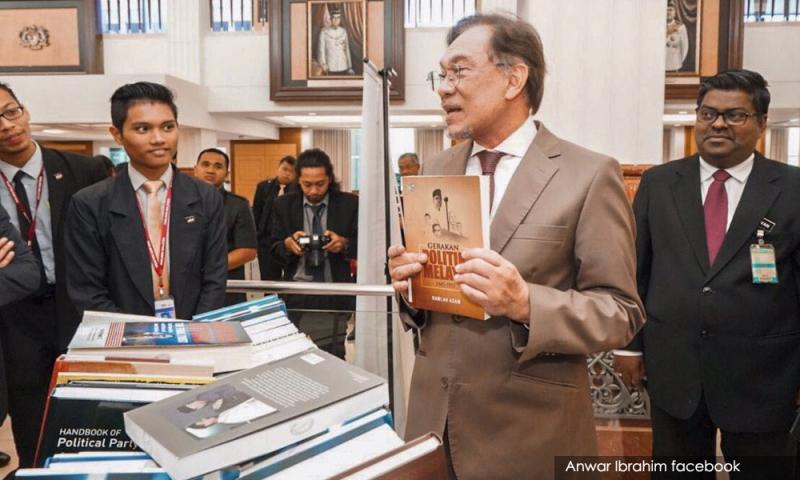ADUN SPEAKS | Social divisions affect people's reading habits
ADUN SPEAKS | Prime Minister Anwar Ibrahim might have hit the nail on the head when he commented that Malaysians in general are low on the score when it comes to the passion for reading.
Because they don’t read much, there is a tendency to believe in half-truths and downright lies.
Take the case of Kedah Menteri Besar Muhammad Sanusi Md Nor in making his preposterous claims that Penang rightfully belongs to Kedah.
Knowledge about the history and formation of the country would have been sufficient to dismiss Sanusi’s ludicrous claims.
But because people in general are not knowledgeable about the history and politics of this country, there might be a tendency to accept Sanusi’s disastrous views.
People who are well-read and who have basic knowledge of history might not pay attention to what Sanusi said.
It will be dismissed as a political ploy to hoodwink the naive and those not well-read about the country’s political history.
Unfortunately, given the political polarisation between the opposition and the government, Sanusi’s stand might find faithful adherents in the ranks of the opposition.
It’s what you read
Anwar bemoans the lack of reading culture among Malaysians leading them to accept lies and half-truths.
I would go one step further to say that while reading is important, it is also important what the people read, whether the reading materials are of quality, written by good authors and most importantly whether the reading materials are based on facts.

Improvement of language can depend on both fiction and non-fiction, but the quality of the material especially the non-fiction component is significant from the point of view of derivation of knowledge.
Reading reviews of books before they are bought can help us to ensure that quality books are purchased for consumption.
People can read as much as they want, but there is no guarantee they will not be gullible in swallowing lock, stock and barrel the views of those who make preposterous and dangerous speeches.
Yes, I concede reading is important, not necessarily to be voracious, but to keep up with local and national developments.
Reading is important in allowing us to make reasoned opinions about our environment. However, it does not automatically beget the outcome that we aspire to.
The critical thing is our state of consciousness about the nature of society, its problems and what needs to be done to move beyond.
It is not people do not read; being glued to hand phones is hardly the method of improving our reading.
Passion for knowledge and understanding about the environment in which we live should be the main motivating factor in reading and understanding.
This is not to diminish the factor of reading for pleasure.
New ways of reading
Thanks to the developments in the realm of information technology, books and other reading materials can be purchased cheaply and read on electronic devices or gadgets.

While physical books could be purchased and ordered, digital versions cannot be purchased for a fraction of the costs of physical books.
It is indeed an irony that while technological and digital developments have allowed for the relative ease in reading, unfortunately, most Malaysians have not taken advantage of new developments in reading.
The passion for reading might not be there.
Reading might still be the luxury of particular socio-economic classes.
It would be unfair and unjust to expect the poor and the underprivileged classes to have the same access to reading materials or the luxury of time and space to engage in reading.
It is understandable that the lower socio-economic classes might not have the advantage of fully grasping Sanusi’s views.

It is not that ordinary folk in Kedah are totally devoid of understanding alternative views on Penang and whether it really belongs to Kedah.
While I accept that there can be no compromise on the need to be passionate about reading, the ability to read and be well-informed is very often mediated by variables such as class divisions, the kinds of materials read, the quality of reading materials, access to reading materials and others.
Urging people to read and be well-informed is not a straightforward matter.
The ability to read widely or not is often the function of the nature of society.
In this sense, reading is very often a variable dependent on the social formation of society.
It is just like the variable of education. Education is the key to success, but not everyone in society has equal access to education. Access to education is mediated by class divisions.
P RAMASAMY is the Perai assemblyperson and Penang deputy chief minister II.
The views expressed here are those of the author/contributor and do not necessarily represent the views of Malaysiakini.
RM12.50 / month
- Unlimited access to award-winning journalism
- Comment and share your opinions on all our articles
- Gift interesting stories to your friends
- Tax deductable
